Beginning C for Arduino
Copyright 2012 by Jack Purdum
All rights reserved. No part of this work may be reproduced or transmitted in any form or by any means, electronic or mechanical, including photocopying, recording, or by any information storage or retrieval system, without the prior written permission of the copyright owner and the publisher.
ISBN-13 (pbk): 978-1-4302-4776-0
ISBN-13 (electronic): 978-1-4302-4777-7
Trademarked names, logos, and images may appear in this book. Rather than use a trademark symbol with every occurrence of a trademarked name, logo, or image we use the names, logos, and images only in an editorial fashion and to the benefit of the trademark owner, with no intention of infringement of the trademark. The use in this publication of trade names, trademarks, service marks, and similar terms, even if they are not identified as such, is not to be taken as an expression of opinion as to whether or not they are subject to proprietary rights.
President and Publisher: Paul Manning
Lead Editor: Michelle Lowman
Development Editor: Matthew Moodie
Technical Reviewer: Brad Levy
Editorial Board: Steve Anglin, Mark Beckner, Ewan Buckingham, Gary Cornell, Morgan
Ertel, Jonathan Gennick, Jonathan Hassell, Robert Hutchinson, Michelle Lowman, James Markham,
Matthew Moodie, Jeff Olson, Jeffrey Pepper, Douglas Pundick, Ben Renow-Clarke, Dominic
Shakeshaft, Gwenan Spearing, Matt Wade, Tom Welsh
Coordinating Editor: Katie Sullivan
Copy Editor: Mary Behr
Compositor: Bytheway Publishing Services
Indexer: SPi Global
Artist: Spi Global
Cover Designer: Anna Ishchenko
Distributed to the book trade worldwide by Springer Science+Business Media, LLC., 233 Spring Street, 6th Floor, New York, NY 10013. Phone 1-800-SPRINGER, fax (201) 348-4505, e-mail orders-ny@springer-sbm.com, or visit www.springeronline.com.
For information on translations, please e-mail rights@apress.com, or visit www.apress.com.
Apress and friends of ED books may be purchased in bulk for academic, corporate, or promotional use. eBook versions and licenses are also available for most titles. For more information, reference our Special Bulk SaleseBook Licensing web page at http://www.apress.com/bulk-sales.
The information in this book is distributed on an as is basis, without warranty. Although every precaution has been taken in the preparation of this work, neither the author(s) nor Apress shall have any liability to any person or entity with respect to any loss or damage caused or alleged to be caused directly or indirectly by the information contained in this work.
Any source code or other supplementary materials referenced by the author in this text is available to readers at www.apress.com. For detailed information about how to locate your books source code, go to http://www.apress.com/source-code/.
To Jane for her unwavering support during this project.
Contents at a Glance




















Contents




















About the Author

 Jack Purdum is a retired professor from Purdue Universitys College of Technology. Dr. Purdum has authored 17 programming and computer-related textbooks and has been involved with university-level teaching for more than 25 years. He continues to contribute to magazines and journals and has been a frequent speaker at various professional conferences. He was the founder and CEO of Ecosoft, Inc., a company that specialized in compilers and other programming tools for the PC. He continues to be actively engaged in onsite training and instruction in Object-Oriented Programming analysis and design. Dr. Purdum has developed numerous teaching methodologies (e.g., The Right-Left Rule, The Bucket Analogy, The Five Programming Steps, Sideways Refinement) and code benchmarks (Dhampstone) and has been recognized for his teaching endeavors over the years. He received his BA from Muskingum College and his MA and PhD degrees from The Ohio State University.
Jack Purdum is a retired professor from Purdue Universitys College of Technology. Dr. Purdum has authored 17 programming and computer-related textbooks and has been involved with university-level teaching for more than 25 years. He continues to contribute to magazines and journals and has been a frequent speaker at various professional conferences. He was the founder and CEO of Ecosoft, Inc., a company that specialized in compilers and other programming tools for the PC. He continues to be actively engaged in onsite training and instruction in Object-Oriented Programming analysis and design. Dr. Purdum has developed numerous teaching methodologies (e.g., The Right-Left Rule, The Bucket Analogy, The Five Programming Steps, Sideways Refinement) and code benchmarks (Dhampstone) and has been recognized for his teaching endeavors over the years. He received his BA from Muskingum College and his MA and PhD degrees from The Ohio State University.

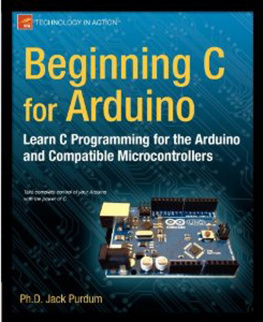
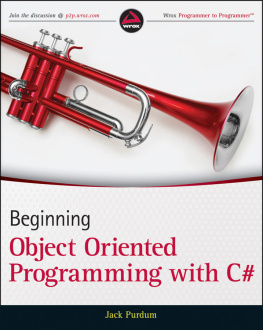
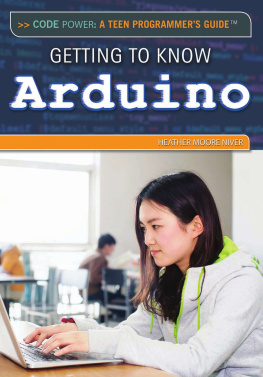
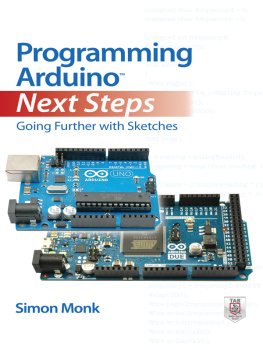
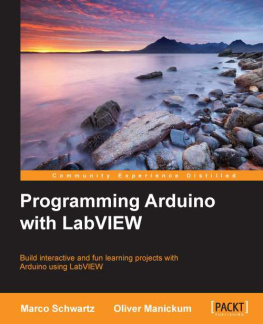

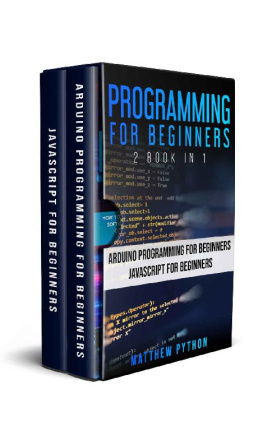
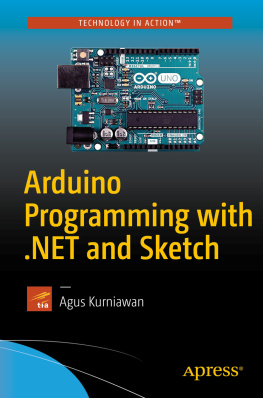

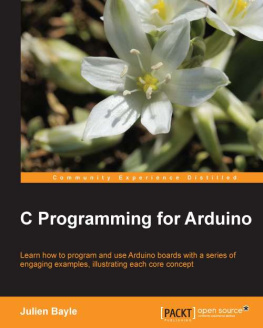
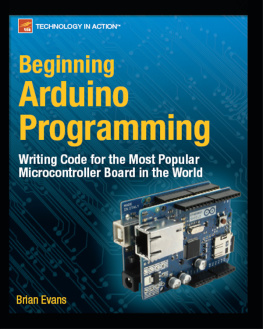



 Jack Purdum is a retired professor from Purdue Universitys College of Technology. Dr. Purdum has authored 17 programming and computer-related textbooks and has been involved with university-level teaching for more than 25 years. He continues to contribute to magazines and journals and has been a frequent speaker at various professional conferences. He was the founder and CEO of Ecosoft, Inc., a company that specialized in compilers and other programming tools for the PC. He continues to be actively engaged in onsite training and instruction in Object-Oriented Programming analysis and design. Dr. Purdum has developed numerous teaching methodologies (e.g., The Right-Left Rule, The Bucket Analogy, The Five Programming Steps, Sideways Refinement) and code benchmarks (Dhampstone) and has been recognized for his teaching endeavors over the years. He received his BA from Muskingum College and his MA and PhD degrees from The Ohio State University.
Jack Purdum is a retired professor from Purdue Universitys College of Technology. Dr. Purdum has authored 17 programming and computer-related textbooks and has been involved with university-level teaching for more than 25 years. He continues to contribute to magazines and journals and has been a frequent speaker at various professional conferences. He was the founder and CEO of Ecosoft, Inc., a company that specialized in compilers and other programming tools for the PC. He continues to be actively engaged in onsite training and instruction in Object-Oriented Programming analysis and design. Dr. Purdum has developed numerous teaching methodologies (e.g., The Right-Left Rule, The Bucket Analogy, The Five Programming Steps, Sideways Refinement) and code benchmarks (Dhampstone) and has been recognized for his teaching endeavors over the years. He received his BA from Muskingum College and his MA and PhD degrees from The Ohio State University.